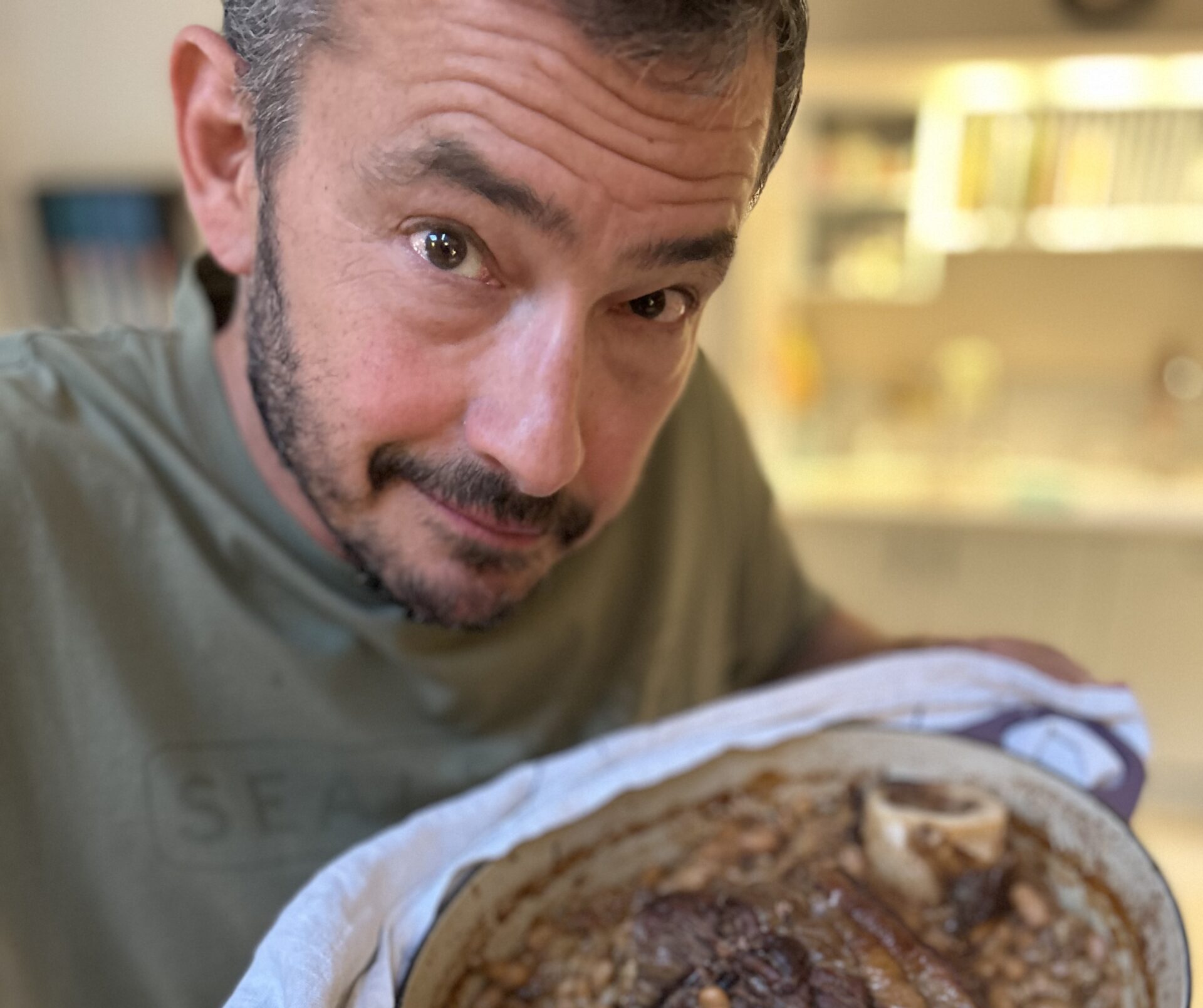The Times’ food critic speaks to Alex Parren about the challenges of growing up Jewish in London and rediscovering his heritage through Ashkenazi culinary customs.
Although best known as the sharp-tongued restaurant critic for The Times, Giles Coren is also outspoken about his Jewish ancestry and is a regular contributor for The Jewish Chronicle.
He has written about how he wasn’t raised Jewish: he didn’t have a bar mitzvah and never learned Hebrew. For Coren, food is the ideal way to anchor his Jewish identity.
“Restaurant critic is a natural job choice for a Jew,” he says, “because Jews think about every mouthful they eat”.
Every bite is a journey through his family tree and thousands of years of tradition. “When we sit down for a seder, we think about why we’re eating each food and what it means, and we talk about it. That’s what a restaurant critic does,” he says. “With every mouthful, I’m thinking: ‘Why am I eating this? Why was it done this way?’”
His father, Alan Coren, was a humorist and fellow journalist. “My father was racy and metropolitan,” says Coren. “Although he was brought up Jewish, it was not interesting to him when he was in his 20s and 30s.”
Like many Jews in Britain, his parents made an effort to assimilate and, in doing so, erased part of their heritage. “I was embarrassed to be Jewish,” admits Coren. “I didn’t want to be Jewish. I didn’t think it was cool.” Now, in his fifties, he appreciates the importance of his Jewish identity and wishes he had been raised with more ties to the culture.

Just like any journalist, Coren is a great storyteller, and conversation flows freely as we discuss all things Hebraic, despite an unprovoked recounting of his own circumcision catching me off-guard.
“I was ritually circumcised by a mohel [a Jewish man trained in the practice of male circumcision],” he explains. “My great-grandfather, who was born in 1885 in the old Russian empire and spoke mostly Yiddish, held me down on the kitchen table.”
When Coren’s great-grandfather arrived in Britain in 1903, he probably never imagined that his ticket to a new life would involve leaving behind a piece of his identity. Fleeing the pogroms of the Russian Empire, he inadvertently set off a chain reaction of culinary escapades that would shape Coren’s relationship with his Jewish heritage.
“I didn’t want to be Jewish. I didn’t think it was cool.”
Giles Coren
Fast forward four decades, and the next generation of Coren’s family was staring down the barrel of the Holocaust, a time when survival meant turning your back on your heritage.
“It’s very isolating,” Coren says of having parents who aren’t proud of being Jewish. “But I feel like I can connect with my grandparents and my great-grandparents through food.”
Coren’s parents lived in east London in the 1960s, a time when Jews were separate from other communities. “Not being available to do things on a Friday night because of Shabbat, that’s not what they wanted,” he says. “They let all of those things go because they wanted to be modern and British.”
While his mother may not be shouting from the rooftops about her Jewish roots, she certainly knows her way around a kitchen. “She’s not especially proud of these recipes that she has, but she’s the one who’s a good cook,” says Coren. “I learned cholent from her, although she makes a posh version of it.”
Cholent is a staple in Ashkenazi Jewish cuisine. It’s a hearty stew made with beef brisket, beans, chickpeas, barley and root vegetables.
Coren’s mother chooses to ‘modernise’ typically heavy and stodgy Ashkenazi recipes like cholent. “Her family came from Czechoslovakia, which had sophisticated cuisine. She cooks the beans and barley separately and makes it with a fillet of beef,” he says. “But I don’t do it that way. I make it the old-fashioned way.”
Choosing to eschew this posh nosh and make dishes traditionally is Coren’s way of reclaiming his Jewish identity.
And let’s not forget the culinary mishaps he’s had along the way. Take, for instance, Coren’s attempt at a lokshen pudding. This Ashkenazi recipe combines noodles with butter, eggs, and sultanas to create an unusual dessert dish.

“I hadn’t had it before, so I tried to make it with my daughter,” he says. “It went hilariously wrong. It was thick and heavy and tasteless. But maybe that’s how it’s supposed to be. There are many dishes that make me think only Jews could like this.”
As for the future of Jewish cuisine? Coren sees a shift toward lighter, fresher fare, but he’s not ready to give up his bubbe’s brisket just yet. “A lot of Jewish restaurants now focus more on Israeli food. Everyone’s eating hummus and delicious shawarma,” he says. “But I don’t think of that as Jewish food.”
Coren considers food from the Middle East to be some of the best in the world. But for him, Jewish food is all about the thick, heavy, traditional dishes from Eastern Europe. “It’s disgusting, but I try to make it as nice as I can,” he laughs.
So, whether he’s dissecting a Michelin-starred masterpiece or grappling with a gefilte fish gone wrong, Giles Coren is proving that when it comes to Jewish identity, the proof is in the (lokshen) pudding. Or, in his case, maybe just in the cholent.
